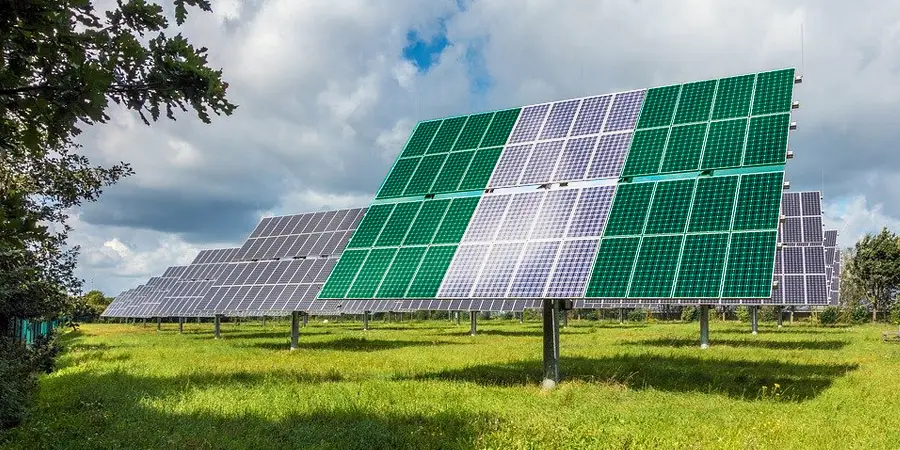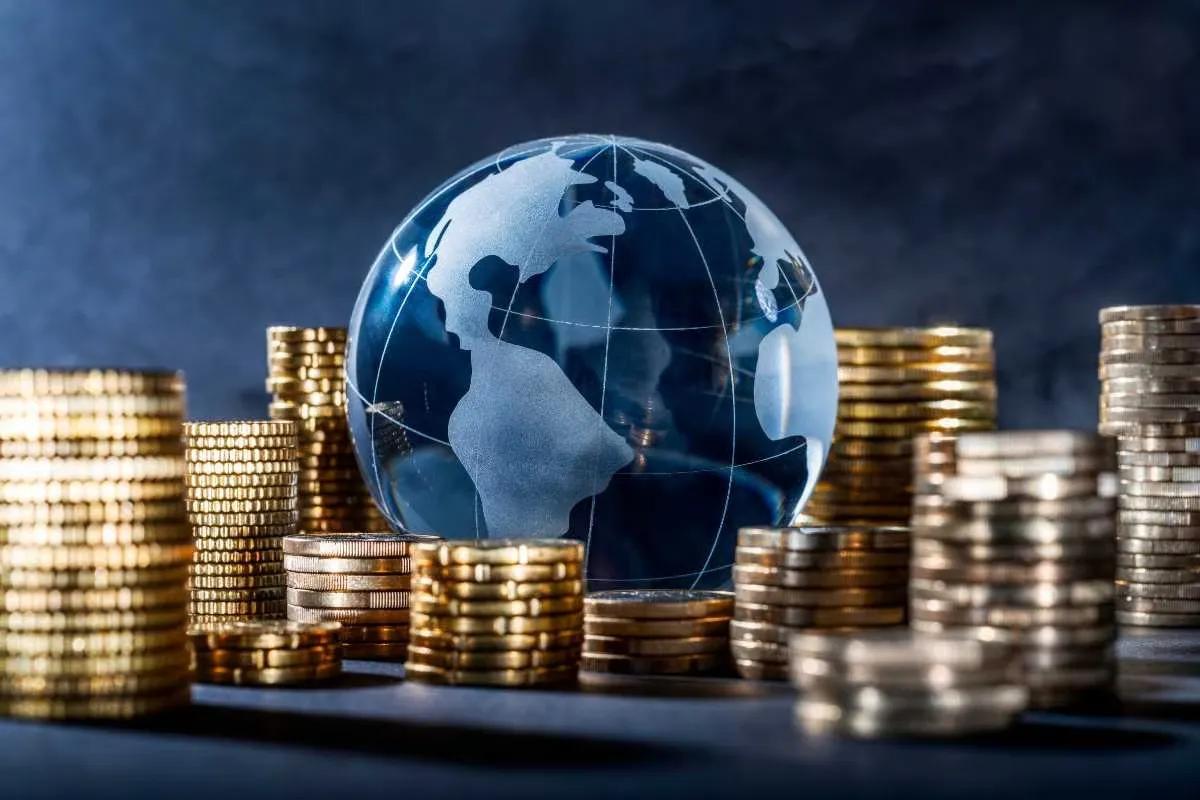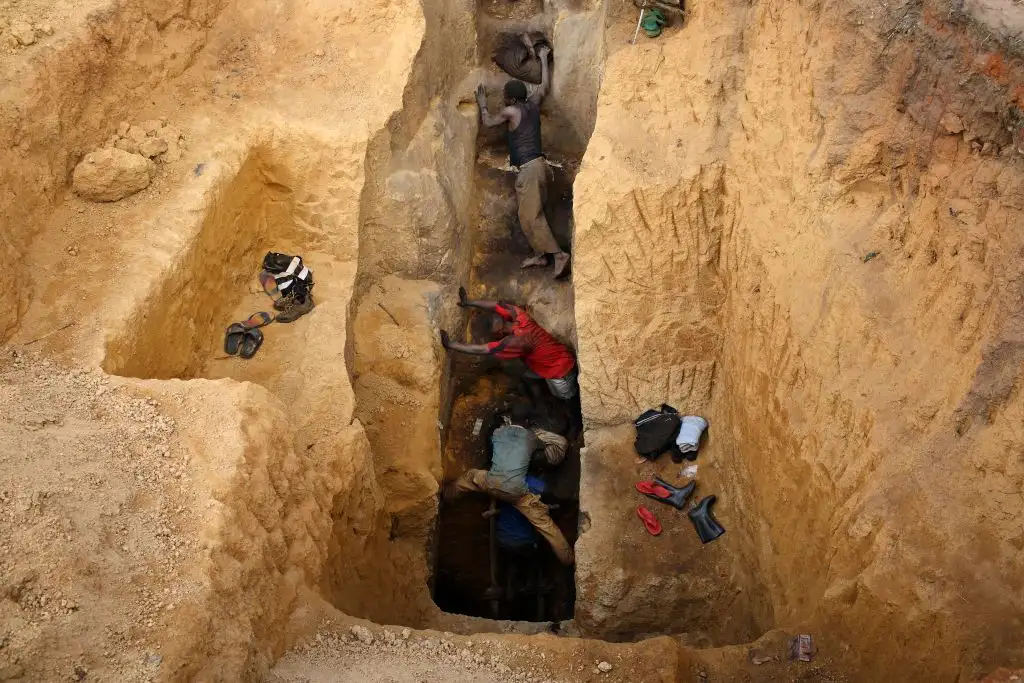In a bold declaration that underscores Nigeria’s determination to lead Africa’s green energy revolution, Vice President Kashim Shettima has unveiled the nation’s ambitious plan to unlock over $410 billion in renewable energy investments between now and 2060. This transformative initiative, announced at the inaugural Nigerian Renewable Energy Innovation Forum (NREIF) 2025 in Abuja on Tuesday, October 14, 2025, represents one of the most comprehensive renewable energy strategies ever articulated by an African nation.
The announcement comes as Nigeria positions itself at the forefront of the continent’s energy transition, leveraging its vast natural resources, youthful population, and strategic location to become what Shettima described as “the vibrant heartbeat of Africa’s renewable energy revolution.” With global attention increasingly focused on sustainable development and climate action, Nigeria’s ambitious blueprint offers a glimpse into how the continent’s most populous nation plans to address its energy challenges while contributing to global decarbonization efforts.
Build the future you deserve. Get started with our top-tier Online courses: ACCA, HESI A2, ATI TEAS 7, HESI EXIT, NCLEX-RN, NCLEX-PN, and Financial Literacy. Let Serrari Ed guide your path to success. Enroll today.
A $410 Billion Investment Opportunity: Breaking Down Nigeria’s Vision
Speaking to a diverse audience of international investors, development partners, policymakers, and renewable energy stakeholders, Vice President Shettima outlined Nigeria’s comprehensive energy transition roadmap under President Bola Tinubu’s administration. The $410 billion investment target represents not just a financial commitment but a fundamental reimagining of Nigeria’s energy infrastructure and economic development strategy.
“We have too much at stake,” Shettima emphasized during his keynote address. “We are blessed with the minerals that power clean technologies, and Nigeria brings to the table youth, ambition, and untapped renewable potential. Let us seize this moment. Let us affirm that Nigeria is ready, ready to harness her resources, unlock her capital, and become the vibrant heartbeat of Africa’s renewable energy revolution.”
The Vice President’s statement, released through his media aide Stanley Nkwocha, detailed the immediate investment requirements, noting that over $23 billion is urgently needed to expand energy access to millions of Nigerians currently living in energy poverty. However, the longer-term ambition extends far beyond basic electrification. Nigeria is targeting a power system capable of delivering 277 gigawatts of total installed capacity by 2060—a dramatic expansion from current levels that would position the country as a continental powerhouse in clean energy generation.
From Policy to Practice: Nigeria’s Multi-Pronged Approach
The announcement at NREIF 2025 was not merely aspirational rhetoric but came backed by concrete policy frameworks and immediate actionable commitments. The Tinubu administration has signaled its commitment to creating an enabling environment for renewable energy investment through a series of strategic initiatives designed to de-risk private capital and accelerate market development.
Central to this approach is the enhancement of incentives for local manufacturing—a cornerstone of the government’s “Nigeria First” industrial strategy. Rather than simply importing renewable energy technologies, Nigeria is positioning itself to become a manufacturing hub for the continent. “From solar panel assembly lines in Lagos to battery recycling hubs along our industrial corridors, Nigeria must not only participate in this revolution but lead it,” Shettima declared, outlining a vision that emphasizes value addition and technological sovereignty.
The government is simultaneously working to streamline regulatory frameworks, recognizing that bureaucratic obstacles have historically impeded investment in the Nigerian energy sector. By deepening collaboration with state governments, investors, and development partners, the administration aims to create a more predictable and supportive business environment that reduces perceived risks for both domestic and international investors.
Immediate Wins: $400 Million in New Commitments
Beyond the long-term $410 billion vision, the NREIF forum delivered immediate, tangible results that demonstrate growing confidence in Nigeria’s clean energy industrialization drive. Vice President Shettima announced that more than $400 million in new investment commitments had been mobilized during the forum’s engagements, targeting Nigeria’s renewable energy manufacturing value chain.
These investments span critical sectors including solar panel manufacturing, smart meter production, battery storage systems, and recycling facilities. The projects are projected to create over 1,500 direct jobs across multiple states in their initial phases, with significant multiplier effects expected as supply chains develop and ancillary industries emerge. The diversity of these investments—from upstream manufacturing to downstream recycling—reflects a sophisticated understanding of the complete renewable energy ecosystem required for sustainable development.
The commitments include partnerships with several international and local firms. Companies such as Renew Power Ltd., Tranos, Auxano Solar, Levene Photovoltaic Technologies, Tricell Solar Solutions, and IRS Green Energy have committed to establishing operations in Nigeria. Collectively, these projects are expected to add more than 3 gigawatts of renewable capacity across the country, marking a significant step toward Nigeria’s ambitious 277 gigawatt target for 2060.
“These investments reflect growing global confidence in Nigeria’s clean energy industrialization drive,” Shettima noted, emphasizing that the deals signed at the forum represent just the beginning of a sustained investment wave that the government expects to gather momentum in the coming years.
The ‘Nigeria First’ Industrial Strategy: Building Local Capacity
A defining feature of Nigeria’s renewable energy vision is its emphasis on local content development and manufacturing capabilities. The “Nigeria First” policy, championed by President Tinubu, reflects a determination to ensure that the next generation of clean energy technologies—from solar panels to battery energy storage systems—deployed across Nigeria proudly carry the label “Made in Nigeria.”
This approach stands in contrast to renewable energy development models in many developing countries, where technology imports dominate and local participation is limited to project implementation and basic maintenance. By prioritizing domestic manufacturing, Nigeria aims to capture a larger share of the value chain, create high-quality jobs, develop technical expertise, and build export capacity to serve regional markets.
The strategy aligns with broader economic development objectives, recognizing that true energy security must be built on domestic capabilities rather than import dependence. As global supply chains face increasing disruptions and geopolitical tensions, Nigeria’s emphasis on technological self-reliance positions the country to weather external shocks while building a competitive advantage in emerging clean energy markets.
Vice President Shettima was explicit about the stakes: “The future of Africa’s renewable energy supply chains must be anchored locally. This is not just about energy access; it’s about industrial competitiveness, job creation, and long-term economic sustainability.”
Decentralization and Market Reform: Unlocking Private Sector Participation
Recognizing that government resources alone cannot meet the scale of investment required, Nigeria is undertaking significant reforms to create a more decentralized and competitive electricity market. The Federal Ministry of Power, under the leadership of Minister Adebayo Adelabu, is developing policies designed to lay the foundation for a more open, inclusive marketplace that welcomes private sector innovation and capital.
Minister Adelabu, speaking at the NREIF forum, described the event as a “new chapter” in Nigeria’s energy transformation. He outlined the government’s multipronged strategy to address structural challenges that have long plagued the Nigerian power sector, including market liquidity issues, inadequate transmission infrastructure, and regulatory uncertainty.
Central to this reform agenda is the Integrated National Electricity Policy, a comprehensive sector-wide framework aimed at strengthening gains recorded in recent years while accelerating the decentralization of the value chain. The policy framework provides clarity on roles and responsibilities across federal, state, and local levels, while establishing clearer pathways for private sector participation in generation, distribution, and retail.
The 2023 Electricity Act, signed into law by President Tinubu, marks a watershed moment in this decentralization process. The legislation transferred significant regulatory oversight to states, enabling them to develop their own electricity markets, attract investments, and tailor solutions to local needs. This constitutional amendment has already begun bearing fruit, with several states signing partnerships with private developers to expand access and improve service quality.
Vice President Shettima emphasized the critical role of state governments in this transformation: “We count on our State Governments to champion renewable industrial clusters and serve as engines of green growth across the federation.” This call to action recognizes that sustainable energy access requires coordinated action across all levels of government, with states competing to attract investment while collaborating to build national capacity.
One decision can change your entire career. Take that step with our Online courses in ACCA, HESI A2, ATI TEAS 7, HESI EXIT, NCLEX-RN, NCLEX-PN, and Financial Literacy. Join Serrari Ed and start building your brighter future today.
The Rural Electrification Agency: Translating Vision into Community Impact
At the operational heart of Nigeria’s renewable energy transformation sits the Rural Electrification Agency (REA), the implementing arm of the Federal Government responsible for expanding access to underserved and unserved communities. Under the leadership of Managing Director Abba Abubakar Aliyu, the REA has emerged as a critical bridge between national policy ambitions and grassroots implementation.
Aliyu described the NREIF forum as a platform that “connects policy and vision with research efforts” while accelerating Nigeria’s aspirations toward developing a sustainable green energy ecosystem. The REA’s work encompasses multiple streams, from deploying mini-grids in remote communities to implementing the ambitious National Public Sector Solarisation Initiative (NPSSI), which aims to power government buildings, schools, hospitals, and security installations with solar energy.
The agency’s State-by-State Strategic Roundtables have become a model for fostering public-private partnerships tailored to local contexts. By convening state governments, private developers, development finance institutions, and community stakeholders, the REA facilitates dialogue that leads to actionable projects with strong local ownership.
During the NREIF forum, the REA signed several significant memoranda of understanding with state governments and private sector partners. The Governors of Jigawa, Bayelsa, and Ogun States formalized partnerships worth hundreds of millions of dollars, demonstrating that Nigeria’s renewable energy ambitions enjoy support across the political spectrum and geographic regions.
The REA’s track record provides confidence that Nigeria can deliver on its ambitious goals. In recent years, the agency has successfully deployed hundreds of mini-grids across the country, connected thousands of previously unelectrified communities, and supported the development of a vibrant ecosystem of Nigerian renewable energy companies and technicians.
International Partnership: The Netherlands and Beyond
Nigeria’s renewable energy transformation is not happening in isolation but rather as part of a broader network of international partnerships that bring financing, technology transfer, and expertise to complement domestic capabilities. The Netherlands has emerged as a particularly strong partner in this journey, with Dutch Ambassador Bengt Van Loosdrecht describing the NREIF forum as a “milestone” in bilateral relations.
The Netherlands has committed substantial resources to supporting Nigeria’s energy transition, recognizing both the humanitarian imperative of expanding energy access and the commercial opportunities presented by Africa’s largest economy. Dutch expertise in renewable energy technology, sustainable development finance, and water management aligns well with Nigeria’s needs, creating synergies that benefit both nations.
During the forum, several agreements were signed with Dutch companies and government entities, including partnerships for solar manufacturing, mini-grid deployment, and technical capacity building. These deals represent not just financial commitments but also channels for technology transfer and knowledge sharing that will strengthen Nigeria’s domestic capabilities over time.
Beyond the Netherlands, Nigeria has cultivated renewable energy partnerships with a range of international actors. The United Nations, represented at the forum by Deputy Secretary-General Amina Mohammed through Resident Coordinator Mohammed Malick Fall, pledged continued support for Nigeria’s drive to power homes, schools, and communities sustainably. The UN representative emphasized that Nigeria’s success in transitioning to renewable energy would have ripple effects across Africa and contribute to global climate goals.
The World Bank, African Development Bank, European Union, and various bilateral development agencies have all signaled their readiness to support Nigeria’s energy transformation with technical assistance, concessional financing, and risk mitigation instruments. These partnerships are crucial for mobilizing the scale of investment required while ensuring that projects meet international standards for sustainability, social impact, and financial viability.
Addressing the Energy Poverty Challenge
Underlying Nigeria’s renewable energy ambitions is a stark reality: millions of Nigerians still live in energy poverty, lacking access to reliable electricity that is taken for granted in developed economies. According to recent estimates, nearly half of Nigeria’s population—over 100 million people—either have no access to electricity or experience such irregular supply that it cannot support productive activities or modern living standards.
This energy poverty has profound implications for economic development, educational outcomes, healthcare delivery, and quality of life. Students struggle to study after dark. Health clinics cannot refrigerate vaccines. Small businesses cannot operate efficiently. The lack of reliable electricity acts as a brake on Nigeria’s development potential, constraining productivity and limiting opportunities for millions of citizens.
The $23 billion that Vice President Shettima identified as urgently needed for expanding energy access is targeted precisely at this challenge. These investments would support the construction of mini-grids in remote communities, the extension of distribution networks to unserved areas, the deployment of solar home systems for households beyond the grid reach, and the upgrading of existing infrastructure to improve reliability.
Crucially, Nigeria’s approach recognizes that energy access must be sustainable and affordable. Simply connecting communities to unreliable grids with unaffordable tariffs does not solve the problem. The focus on renewable energy, particularly decentralized solutions like mini-grids and distributed solar, offers pathways to energy access that are both economically viable and environmentally sustainable.
The government has also emphasized that expanding energy access is not simply a social obligation but an economic opportunity. Electrified communities can engage in productive activities—agricultural processing, small-scale manufacturing, digital work—that generate income and tax revenue while creating demand for goods and services. Energy access, in this view, becomes a catalyst for broader economic transformation rather than merely a consumption good to be subsidized.
Climate Leadership and Continental Responsibility
Nigeria’s renewable energy push occurs within the broader context of global climate action and Africa’s unique position in the energy transition debate. As one of Africa’s largest greenhouse gas emitters due to its oil and gas sector, Nigeria faces international scrutiny regarding its climate commitments. At the same time, as a developing nation with pressing development needs, Nigeria has consistently argued for the right to balanced energy transition that does not sacrifice economic growth on the altar of climate action.
Vice President Shettima articulated this balance in his NREIF address: “As the world sails fast towards net zero, Nigeria and Africa must not be left behind.” This statement captures the dual imperative facing Nigeria—to contribute to global climate mitigation efforts while ensuring that its own development trajectory is not constrained by external pressures to abandon fossil fuels before viable alternatives are in place.
The $410 billion investment target represents Nigeria’s commitment to building these viable alternatives. By developing robust renewable energy capacity, Nigeria can gradually reduce its dependence on fossil fuels for domestic consumption while potentially continuing to export oil and gas to generate revenue for development financing. This pragmatic approach recognizes that energy transitions occur over decades, not overnight, and that developing countries require flexibility to manage their transitions in ways that serve their populations.
Nigeria’s success in executing its renewable energy vision would have implications far beyond its borders. As Africa’s most populous nation and largest economy, Nigeria has the potential to serve as a model for other African countries navigating similar challenges. Technologies and business models proven in Nigeria could be adapted and deployed across the continent. Nigerian companies that develop expertise in renewable energy could become regional champions, exporting services and products to neighboring markets.
Vice President Shettima explicitly acknowledged this continental responsibility: “Nigeria brings to the table youth, ambition, and untapped renewable potential.” With over 200 million people and a median age below 19 years, Nigeria’s demographic profile offers both opportunity and obligation. Harnessing this youth dividend through clean energy development could transform Nigeria’s trajectory while demonstrating to the world that African nations can leapfrog outdated technologies and build 21st-century energy systems from the ground up.
Challenges and Critical Success Factors
Despite the optimism and ambition on display at the NREIF forum, Nigeria’s path to becoming Africa’s renewable energy hub faces significant challenges that require honest acknowledgment and strategic planning to overcome.
First, the investment gap remains enormous. While $400 million in new commitments is significant, it represents less than 0.1% of the $410 billion target for 2060. Sustained investment at scale will require not just policy pronouncements but consistent execution, institutional stability, and demonstrated returns that attract follow-on capital. Nigeria must prove that it can deliver on commitments, manage projects effectively, and provide predictable returns to investors.
Second, infrastructure deficits beyond energy pose significant obstacles. Poor transportation networks increase costs for equipment and personnel movement. Weak telecommunications infrastructure complicates remote monitoring and management of distributed energy assets. Inadequate water supply affects power plant operations. Addressing these interconnected infrastructure gaps requires coordinated planning and investment across multiple sectors.
Third, technical capacity constraints must be overcome. While Nigeria has talented engineers and technicians, the scale of the renewable energy transformation will require training thousands of additional skilled workers. Educational institutions must adapt curricula to emphasize renewable technologies. Apprenticeship programs must be expanded. International partnerships for technology transfer must include robust capacity-building components.
Fourth, financing structures need innovation. Much renewable energy investment in developing countries relies on concessional finance from development institutions. While this is helpful, it cannot meet the full scale of need. Nigeria must develop domestic capital markets that can channel savings into long-term energy infrastructure investments. Risk mitigation instruments like partial credit guarantees can help attract commercial capital. Blended finance structures that combine concessional and commercial capital can optimize the use of scarce public resources.
Fifth, policy consistency and regulatory predictability remain critical. Investors need confidence that rules will not change arbitrarily, that contracts will be honored, and that disputes can be resolved fairly. While Nigeria has made progress in improving its business environment, continued reforms to strengthen the rule of law, reduce corruption, and professionalize regulatory institutions will be essential for sustaining investor confidence over the decades required to reach the 2060 target.
Looking Ahead: From Vision to Reality
The Nigerian Renewable Energy Innovation Forum 2025 concluded with participants energized by the possibilities ahead but clear-eyed about the work required. Vice President Shettima urged stakeholders to move beyond rhetoric to action: “This ambition demands more than investment; it demands innovation, local capacity, and commitment.”
In the coming months and years, the test of Nigeria’s renewable energy vision will come in the form of projects commissioned, jobs created, communities electrified, and industries powered. The $400 million in initial commitments announced at the forum must be converted into concrete investments. The policy frameworks outlined must be implemented consistently. The partnerships forged must be deepened and expanded.
Success will be measured not just in gigawatts installed or dollars invested, but in the transformation of daily life for ordinary Nigerians. The student who can study effectively after dark. The clinic that can safely store medicine. The entrepreneur who can operate machinery reliably. The community that gains connectivity and opportunity through access to modern energy services. These human outcomes must remain at the center of Nigeria’s renewable energy transformation.
If Nigeria succeeds in realizing even a significant fraction of its $410 billion vision, the implications would be profound—not just for Nigeria but for Africa and the world. The continent would have demonstrated that African nations can lead in clean energy development, not merely follow. Nigeria would have proven that energy transitions can be vehicles for industrial development and job creation, not just environmental obligations. And millions of people would have gained access to the energy services that underpin modern life and economic opportunity.
As Vice President Shettima concluded his address at NREIF 2025: “Let us seize this moment.” For Nigeria and for Africa, the moment has indeed arrived to turn renewable energy ambitions into transformative reality.
Ready to take your career to the next level? Join our Online courses: ACCA, HESI A2, ATI TEAS 7 , HESI EXIT , NCLEX – RN and NCLEX – PN, Financial Literacy!🌟 Dive into a world of opportunities and empower yourself for success. Explore more at Serrari Ed and start your exciting journey today! ✨
Track GDP, Inflation and Central Bank rates for top African markets with Serrari’s comparator tool.
See today’s Treasury bonds and Money market funds movement across financial service providers in Kenya, using Serrari’s comparator tools.
photo source: Google
By: Montel Kamau
Serrari Financial Analyst
15th October, 2025
Article, Financial and News Disclaimer
The Value of a Financial Advisor
While this article offers valuable insights, it is essential to recognize that personal finance can be highly complex and unique to each individual. A financial advisor provides professional expertise and personalized guidance to help you make well-informed decisions tailored to your specific circumstances and goals.
Beyond offering knowledge, a financial advisor serves as a trusted partner to help you stay disciplined, avoid common pitfalls, and remain focused on your long-term objectives. Their perspective and experience can complement your own efforts, enhancing your financial well-being and ensuring a more confident approach to managing your finances.
Disclaimer: This article is for informational purposes only and does not constitute financial advice. Readers are encouraged to consult a licensed financial advisor to obtain guidance specific to their financial situation.
Article and News Disclaimer
The information provided on www.serrarigroup.com is for general informational purposes only. While we strive to keep the information up to date and accurate, we make no representations or warranties of any kind, express or implied, about the completeness, accuracy, reliability, suitability, or availability with respect to the website or the information, products, services, or related graphics contained on the website for any purpose. Any reliance you place on such information is therefore strictly at your own risk.
www.serrarigroup.com is not responsible for any errors or omissions, or for the results obtained from the use of this information. All information on the website is provided on an as-is basis, with no guarantee of completeness, accuracy, timeliness, or of the results obtained from the use of this information, and without warranty of any kind, express or implied, including but not limited to warranties of performance, merchantability, and fitness for a particular purpose.
In no event will www.serrarigroup.com be liable to you or anyone else for any decision made or action taken in reliance on the information provided on the website or for any consequential, special, or similar damages, even if advised of the possibility of such damages.
The articles, news, and information presented on www.serrarigroup.com reflect the opinions of the respective authors and contributors and do not necessarily represent the views of the website or its management. Any views or opinions expressed are solely those of the individual authors and do not represent the website's views or opinions as a whole.
The content on www.serrarigroup.com may include links to external websites, which are provided for convenience and informational purposes only. We have no control over the nature, content, and availability of those sites. The inclusion of any links does not necessarily imply a recommendation or endorsement of the views expressed within them.
Every effort is made to keep the website up and running smoothly. However, www.serrarigroup.com takes no responsibility for, and will not be liable for, the website being temporarily unavailable due to technical issues beyond our control.
Please note that laws, regulations, and information can change rapidly, and we advise you to conduct further research and seek professional advice when necessary.
By using www.serrarigroup.com, you agree to this disclaimer and its terms. If you do not agree with this disclaimer, please do not use the website.
www.serrarigroup.com, reserves the right to update, modify, or remove any part of this disclaimer without prior notice. It is your responsibility to review this disclaimer periodically for changes.
Serrari Group 2025
















